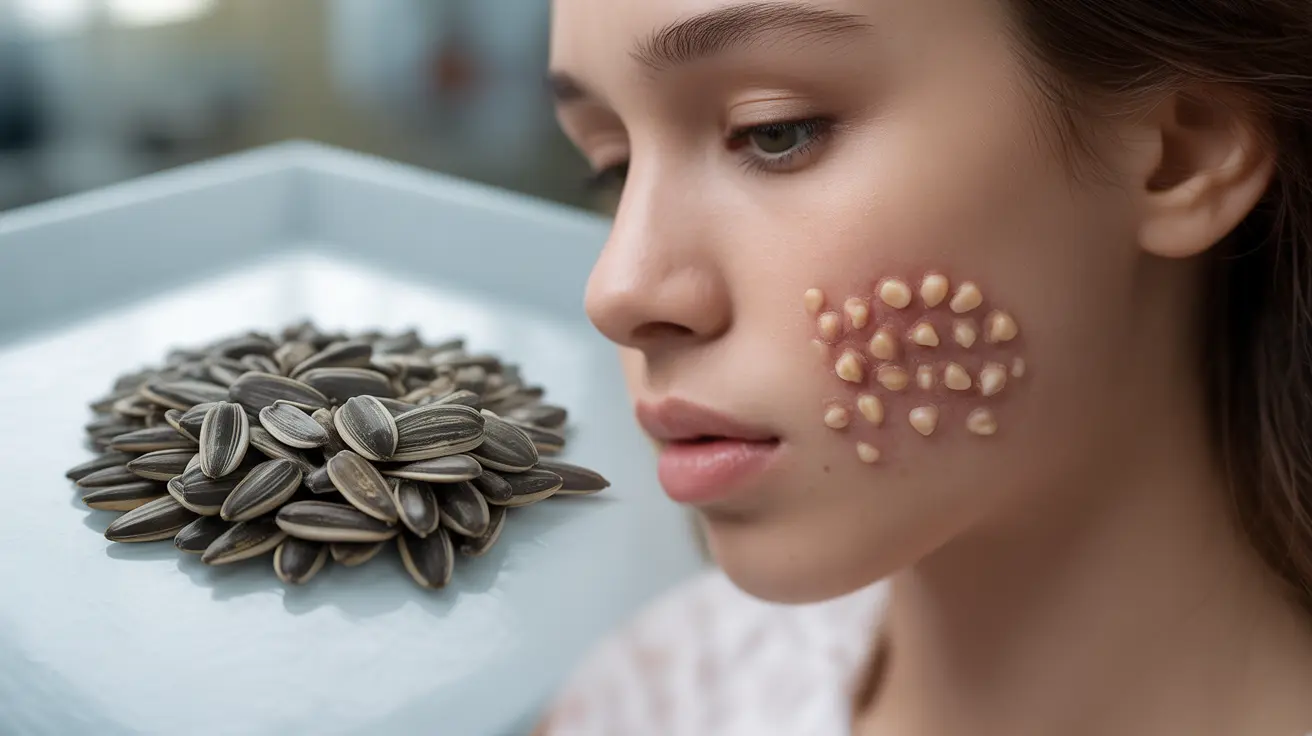A sunflower seed allergy is a potentially serious immune system reaction that occurs when the body mistakenly identifies proteins in sunflower seeds as harmful substances. While less common than other nut or seed allergies, this condition requires careful attention and proper management to prevent adverse reactions.
For individuals affected by this allergy, understanding the symptoms, diagnosis methods, and management strategies is crucial for maintaining their health and safety. This comprehensive guide explores everything you need to know about sunflower seed allergies and how to effectively manage this condition.
Common Symptoms and Reaction Times
Sunflower seed allergy symptoms can manifest in various ways and typically appear within minutes to a few hours after exposure. Common symptoms include:
- Oral allergy symptoms (itching or tingling in the mouth)
- Skin reactions (hives, eczema, or redness)
- Digestive issues (nausea, vomiting, or abdominal pain)
- Respiratory symptoms (wheezing, coughing, or difficulty breathing)
- Nasal congestion or runny nose
The severity of symptoms can vary significantly between individuals, ranging from mild discomfort to severe allergic reactions requiring immediate medical attention.
Diagnosis Process and Testing Methods
Healthcare providers use several approaches to diagnose a sunflower seed allergy accurately:
Medical History Review
Your doctor will carefully examine your history of reactions, including specific symptoms, timing, and potential triggers.
Allergy Testing Options
- Skin prick tests
- Blood tests (specific IgE testing)
- Oral food challenges (under medical supervision)
Treatment and Management Strategies
While there is no cure for sunflower seed allergies, several management strategies can help prevent and control reactions:
Avoidance Measures
The primary treatment involves strict avoidance of sunflower seeds and products containing them. This includes carefully reading food labels and being aware of potential cross-contamination risks.
Emergency Preparedness
People with severe allergies should:
- Carry emergency medication (such as epinephrine auto-injectors)
- Wear medical alert jewelry
- Have an emergency action plan
- Inform family, friends, and colleagues about their condition
Understanding Anaphylaxis Risk
Sunflower seed allergies can potentially trigger anaphylaxis, a severe and life-threatening allergic reaction. Signs of anaphylaxis include:
- Severe difficulty breathing
- Rapid pulse
- Dramatic blood pressure drop
- Dizziness or fainting
- Swelling of the throat or tongue
Hidden Sources and Cross-Reactivity
Sunflower seeds can be found in various products beyond obvious sources:
- Baked goods and granola
- Vegetable oils and spreads
- Bird seed (potential exposure risk)
- Cosmetics and skincare products
- Some processed foods
Frequently Asked Questions
What are the common symptoms of a sunflower seed allergy and how quickly do they appear after exposure? Symptoms typically appear within minutes to two hours and can include hives, itching, swelling, digestive issues, and respiratory problems. In severe cases, symptoms may progress to anaphylaxis.
How is a sunflower seed allergy diagnosed by doctors and what tests are used? Doctors use a combination of medical history review, skin prick tests, specific IgE blood tests, and sometimes supervised oral food challenges to diagnose sunflower seed allergies.
What treatments and management options are available for sunflower seed allergy? Management primarily involves strict avoidance of sunflower seeds and products containing them. Treatment includes having emergency medications available and following an allergist-prescribed action plan.
Can sunflower seed allergy cause severe reactions like anaphylaxis and what emergency measures should be taken? Yes, sunflower seed allergies can cause anaphylaxis. Emergency measures include using prescribed epinephrine auto-injectors immediately and calling emergency services.
What foods and products should people with sunflower seed allergy avoid to prevent reactions? People should avoid obvious sources like whole seeds and products containing sunflower oil, plus check labels for hidden sources in baked goods, processed foods, and personal care products.




